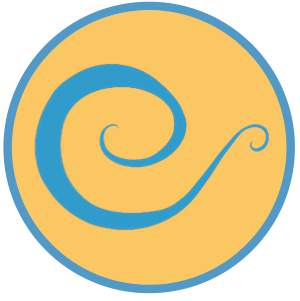The right tool for the job: how to choose your marketing channel intelligently


Lots of people, they feel stymied by all the social media: blogs, email, FaceBook, Pinterest, on and on.
“This man told me I am supposed to have a blog”, someone told me the other day. “But I don’t want to blog.” People see guru videos and think they are supposed to become another person. Then they lose their authenticity, and with that they lose the very thing that would make them appealing: their own voice.
Gurus made millions, so you better listen to them. But maybe they made millions because they were doing what felt right for them. Then, they teach the method, but they only teach the mechanics of the method. Often they do not teach the inner part, the energy that makes it fun and exciting.
So the key is to feel authentic in your marketing—to who you are, what you want to offer. And of course, to be valuable to your audience.
But the tone and tenor of each channel is different, and the emotional context varies. For example, when you’re emailing something to your mailing list, you can presume a higher level of comfort with you, and thus be bolder in making offers. In a blog post, on the other hand, you need to be more careful, because people don’t know you yet.
It probably feels good to announce a blog post or product to your personal FaceBook feed, because they want to support you—”look, I made this—I’m doing it”. But if you come across as too salesy—”Don’t miss this outstanding opportunity!”—it could alienate them, right? On the other hand, coming from your FB business page, it would be more appropriate, because you have your business hat on.
Each channel is a different animal. Here are some notes I took about that. This is just an intro, and I think I could make a whole class or e-book about this, ‘cuz it’s really cool, and I don’t hear people thinking about it in this way. You can use these to begin to think about where you want to put different information, and the tone to adopt there.
- Personal and intimate
- Time-bound
- To a “warm” audience
- A nice place for some content curation
- A good place for some sales mixed with value content
- A good place to keep people notified of things
- You can use “be notified” as an incentive for them to sign up
- Often for information seekers
- A potentially “cold” audience
- Often “evergreen”
- So-so for content curation, in my opinion (reposting valuable things you found from somewhere else)
- Great for building up a knowledge base of articles or concepts, that could eventually become a book, or a body of knowledge that can be referenced over time, linked together, etc.
- Closer to a “warm” audience in the sense that people probably know you
- But closer to a blog in the sense that you’re not as sure if anyone is going to read it (I know, you’re not sure if someone reads your email, but everyone who gets it does already know you, and they well might read it—to me it feels nowadays more hit and miss for FB posts)
- Really loves images
- Loves videos even more
- Super loves FB Live videos
- Pretty good for content curation
- A great place to gather attention on the platform most people are already on—such as a FB Live broadcast
- Used well (maybe with promoted posts) can be good to get targeted people to engage, signup, contact you, etc.
- Just to your network and their networks, obviously
- Could spread beyond your network, if it was very interesting
- Really loves images
- Loves videos even more than images
- Really loves FB Live videos
- You have to be more sensitive about seeming salesy than with a FB page—these are your friends, after all
- Great for content curation if it is something you’d share if it weren’t related to your business, and annoying otherwise (your friends may genuinely want to see what you’ve written for your biz because you’re you, but are a lot less likely to want to see things from other people)
- Something that your followers may or may not see, it depends on them (some groups are on Twitter a lot more than others—of course, if you really use Twitter to inform, you could encourage them to follow your Twitter feed—if it’s interesting enough, it might actually get them on Twitter)
- A good pointer to something else for those who do see it—it is a “push” technology in that sense
- It is more of a push technology than a FB page
- Great for content curation
- Great for an infographic
- So-so for a nice image that links to a good, related post
- Wonderful for visual content curation
In later posts, I would like to add more detail in the method I worked out to develop a content map that makes sense for me—but here, at least, is a start.
Here are a few use cases:
- Want to pre-educate your customers-to-be? — Blog posts might be good, or even an automated email series.
- Want to build up your authority and credibility in your area? — Blog posts would be good there.
- Want to reach out to people who already know you? — Email, of course.
- Want to grab free attention from amongst your network? — Well, you can start with personal Facebook posts.
These are just a few.

